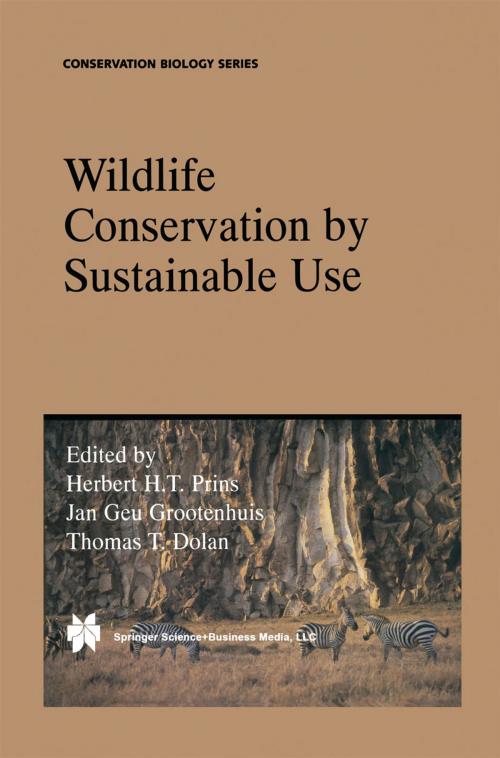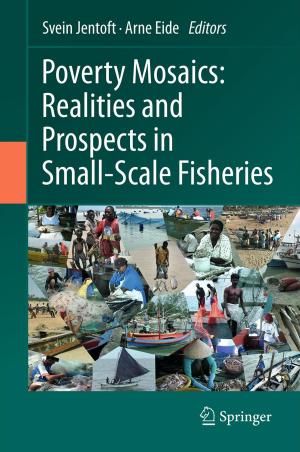Wildlife Conservation by Sustainable Use
Nonfiction, Science & Nature, Technology, Environmental, Nature, Environment, Environmental Conservation & Protection| Author: | ISBN: | 9789401140126 | |
| Publisher: | Springer Netherlands | Publication: | December 6, 2012 |
| Imprint: | Springer | Language: | English |
| Author: | |
| ISBN: | 9789401140126 |
| Publisher: | Springer Netherlands |
| Publication: | December 6, 2012 |
| Imprint: | Springer |
| Language: | English |
One of the major challenges of sustainable development is the interdisciplinary nature of the issues involved. To this end, a team of conservation biologists, hunters, tourist operators, ranchers, wildlife and land managers, ecologists, veterinarians and economists was convened to discuss whether wildlife outside protected areas in Africa can be conserved in the face of agricultural expansion and human population growth. They reached the unequivocal - if controversial - conclusion that wildlife can be an economic asset, especially in the African savannas, if this wildlife can be sustainably utilized through safari hunting and tourism.
Using the African savannas as an example, Wildlife Conservation by Sustainable Use shows that in many instances sustainable wildlife utilization comprises an even better form of land use than livestock keeping. Even when population pressure is high, as in agricultural areas or in humid zones, and wild animal species can pose a serious cost to agriculture, these costs are mainly caused by small species with a low potential for safari hunting.
Although ranching has a very low rate of return and is hardly ever profitable, the biggest obstacle to the model of sustainable wildlife use outlined in Wildlife Conservation by Sustainable Use is from unfair competition from the agricultural sector, such as subsidies and lack of taxation, resulting in market distortion for wildlife utilization. This book thus gives valuable evidence for a different way of working, providing arguments for removing such distortions and thereby facilitating financially sound land use and making it a rationally sound choice to conserve wildlife outside protected areas.
The expert team of authors, most of whom came together at a workshop to thrash out the ideas that were then developed into the various chapters, has written a superb account of recent research on this complex subject, resulting in a book that is a major contribution to our understanding of sustainable use of land. The important conclusion is that wildlife conservation can be possible for landholders and local communities if they have a financial interest in protecting wildlife on their lands.
One of the major challenges of sustainable development is the interdisciplinary nature of the issues involved. To this end, a team of conservation biologists, hunters, tourist operators, ranchers, wildlife and land managers, ecologists, veterinarians and economists was convened to discuss whether wildlife outside protected areas in Africa can be conserved in the face of agricultural expansion and human population growth. They reached the unequivocal - if controversial - conclusion that wildlife can be an economic asset, especially in the African savannas, if this wildlife can be sustainably utilized through safari hunting and tourism.
Using the African savannas as an example, Wildlife Conservation by Sustainable Use shows that in many instances sustainable wildlife utilization comprises an even better form of land use than livestock keeping. Even when population pressure is high, as in agricultural areas or in humid zones, and wild animal species can pose a serious cost to agriculture, these costs are mainly caused by small species with a low potential for safari hunting.
Although ranching has a very low rate of return and is hardly ever profitable, the biggest obstacle to the model of sustainable wildlife use outlined in Wildlife Conservation by Sustainable Use is from unfair competition from the agricultural sector, such as subsidies and lack of taxation, resulting in market distortion for wildlife utilization. This book thus gives valuable evidence for a different way of working, providing arguments for removing such distortions and thereby facilitating financially sound land use and making it a rationally sound choice to conserve wildlife outside protected areas.
The expert team of authors, most of whom came together at a workshop to thrash out the ideas that were then developed into the various chapters, has written a superb account of recent research on this complex subject, resulting in a book that is a major contribution to our understanding of sustainable use of land. The important conclusion is that wildlife conservation can be possible for landholders and local communities if they have a financial interest in protecting wildlife on their lands.















